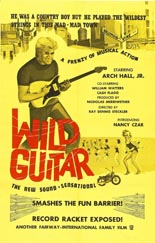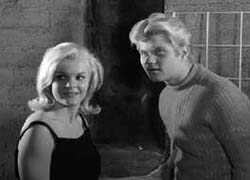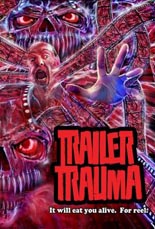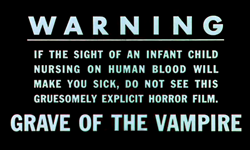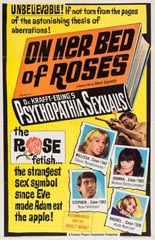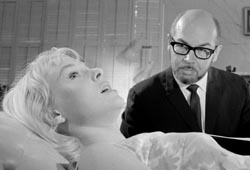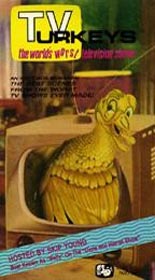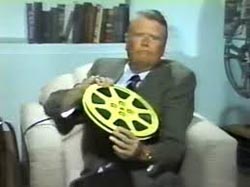
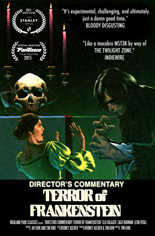 No matter the budget or number of cooks, film shoots are a bitch. Think of Werner Herzog’s Fitzcarraldo or Francis Ford Coppola’s Apocalypse Now. Odds are you haven’t thought of 1977’s Terror of Frankenstein, but oh, how you should. The Swedish/Irish co-production proved to be a highly peculiar farrago, with one of the actors murdering several fellow cast members!
No matter the budget or number of cooks, film shoots are a bitch. Think of Werner Herzog’s Fitzcarraldo or Francis Ford Coppola’s Apocalypse Now. Odds are you haven’t thought of 1977’s Terror of Frankenstein, but oh, how you should. The Swedish/Irish co-production proved to be a highly peculiar farrago, with one of the actors murdering several fellow cast members!
Now, decades later, all is revealed by director Gavin Merrill and screenwriter David Falks — always heard, never seen — through a DVD commentary track, of all things. To hear it is to witness a mind-boggling, historical record of an unfortunate nexus of cinema and crime, talent and tragedy.
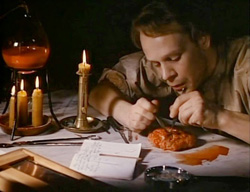 Except that it never happened; Director’s Commentary: Terror of Frankenstein is bogus. Given that premise, you can be forgiven if you assume the cheap-looking film at its center to be fake as well — otherwise, I’d be a hypocrite — but Terror of Frankenstein is the real deal, albeit rightfully obscure. The merry pranksters behind this put-on, director Tim Kirk and producer Rodney Ascher (collaborators on Ascher’s Room 237 documentary), have taken great pains to preserve the facade, including starting this meta project with the familiar FBI warning of home media, tracking issues and a shoddy menu our omniscient viewer navigates, taking a gander at the special features’ two-bit slideshow before selecting the filmmakers’ commentary.
Except that it never happened; Director’s Commentary: Terror of Frankenstein is bogus. Given that premise, you can be forgiven if you assume the cheap-looking film at its center to be fake as well — otherwise, I’d be a hypocrite — but Terror of Frankenstein is the real deal, albeit rightfully obscure. The merry pranksters behind this put-on, director Tim Kirk and producer Rodney Ascher (collaborators on Ascher’s Room 237 documentary), have taken great pains to preserve the facade, including starting this meta project with the familiar FBI warning of home media, tracking issues and a shoddy menu our omniscient viewer navigates, taking a gander at the special features’ two-bit slideshow before selecting the filmmakers’ commentary.
From then on, speaking for the entirety are the opportunistic Merrill (Clu Gulager, A Nightmare on Elm Street 2: Freddy’s Revenge) and irascible Falks (Zack Norman, Cadillac Man). At first, we’re in the dark that the ’77 Terror has a tortured backstory, but it doesn’t take long for their conversation to grow contentious, with an uncomfortable Falks blaming Merrill for the deaths, as well as exploiting them for financial gain. Even if Gulager and Norman can’t quite carry the illusion to total legitimacy, they hook you from the start and are a hoot to hear — especially Norman’s sour-puss portrayal of the guilt-stricken scribe. As information is doled out in small chunks, the story builds and builds toward a payoff that Kirk can’t help but fumble because of Commentary’s confining structure. However anticlimactic, Kirk’s unique experiment is as devious as Victor Frankenstein’s in the film within the film. —Rod Lott

